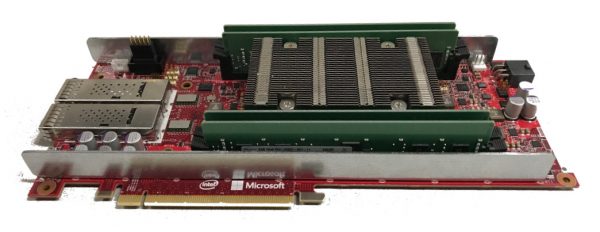Microsoft’s idea of building a hardware platform for real-time Artificial Intelligence has progressed into its advanced stage. Yes, Project Brainwave that promises speedy machine learning in the cloud is nearing its development. The company made some major announcements about it at Hot Chips 2017 event.
This isn’t the first time we’re hearing about Project Brainwave. Earlier too, there have been occasions where Microsoft spilled details about the project. However, this time we have more details of it around and that too from the official source.

Microsoft’s real-time AI Project Brainwave
Project Brainwave is a Deep Learning acceleration platform for real-time artificial intelligence which means the system processes requests as fast as it receives them, with ultra-low latency. It is built in 3 layers.
- A high-performance distributed system architecture;
- A hardware DNN engine synthesized onto FPGAs; and
- A compiler and runtime for low-friction deployment of trained models.
The Project Brainwave uses a powerful “soft” DNN processing unit (or DPU), synthesized onto commercially available FPGAs. It also takes a different approach by providing a design that scales across a range of data types, with the desired data type being a synthesis-time decision. The design combines both the ASIC digital signal processing blocks on the FPGAs and the synthesizable logic to provide a greater and more optimized number of functional units, mentions Microsoft Research blog known for providing in-depth views and perspectives from leading researchers, scientists and engineers.
Project Brainwave also supports a wide range of popular deep learning frameworks like Microsoft’s very own Cognitive Toolkit and Google’s Tensorflow. All this is made possible by incorporating a software stack designed to support such frameworks. The company plans to add some more frameworks to the list in near future.
Artificial Intelligence, as we know is increasingly becoming important for communication. As such, Microsoft doesn’t want to cede any advantage to its arch rivals like Google, Facebook, and others that have already made significant progress in Internet-delivered AI.
Leave a Reply